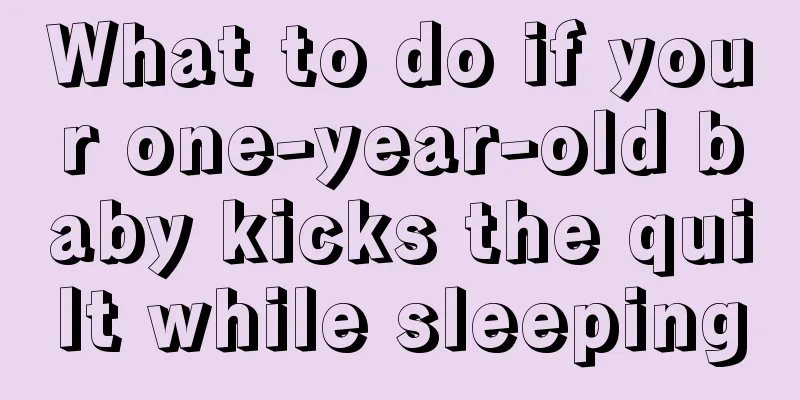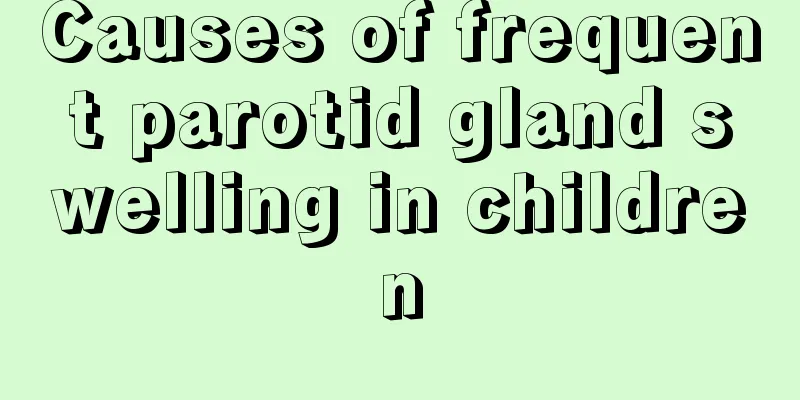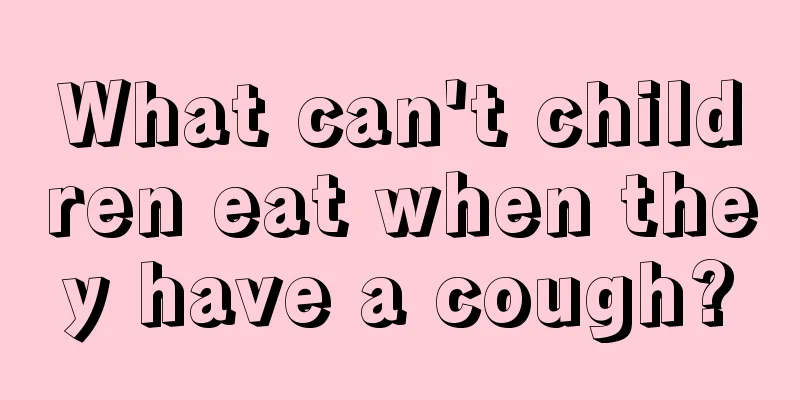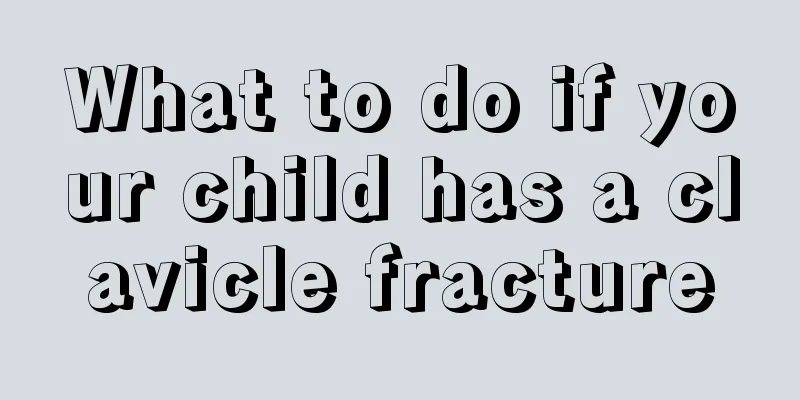What to do if your child has tonsil suppuration
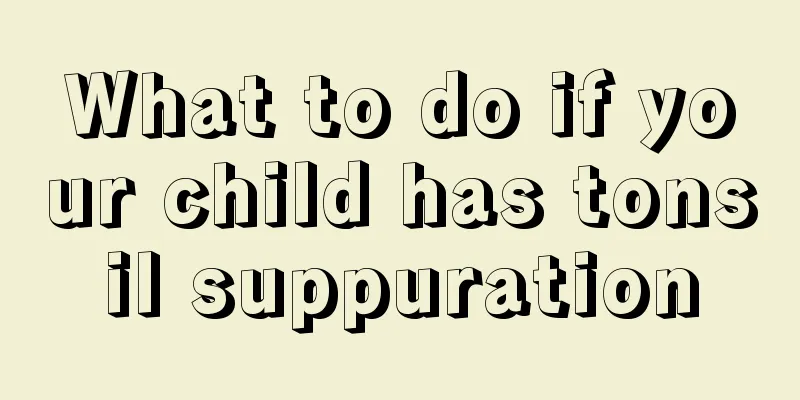
|
Severe inflammation and suppuration of baby's tonsils often cause fever, headache, sore throat, and difficulty swallowing. There are many factors that cause tonsillitis in children. Tonsillitis caused by bacterial or viral infection should be treated by a doctor in time. Pay more attention to rest, drink plenty of water, and preferably eat liquid food. It is strictly forbidden to eat irritating foods. Introduction Overview Purulent tonsillitis in children is a common disease in children and is an upper respiratory tract disease caused by bacterial infection. Among children's respiratory tract infection cases, purulent tonsillitis accounts for about 10% to 15%. It is also difficult to treat purulent tonsillitis in children. The earlier it is discovered and treated, the better the effect will be. symptom Repeated attacks of acute tonsillitis may develop into chronic tonsillitis, the cause of which is related to the low immunity of children. Chronic tonsillitis Pathogenic bacteria are stored in the tonsils. The toxins secreted by the bacteria not only enter the blood and inflammatory secretions and are swallowed to irritate the gastrointestinal tract, but can also cause long-term low fever, indigestion, loss of appetite in children, and even affect growth and development. When the body's immunity decreases, it can have an acute attack. At the same time, bacteria and toxins can cause allergic reactions in the body, causing rheumatic fever (rheumatic arthritis and rheumatic heart disease), nephritis and other diseases. Causes Due to infection by bacteria and viruses, bacteria are more common. The pathogens are mostly hemolytic streptococci, staphylococci, and pneumococci. These bacteria usually exist in the human throat and tonsil crypts. Under normal circumstances, due to the integrity of the tonsil surface epithelium and the continuous secretion of mucous glands, the bacteria can be discharged from the crypt opening along with the shed epithelial bacteria, thus maintaining the health of the body. When the body's resistance is reduced due to excessive fatigue, cold, or local effects of physical or chemical factors, the blood supply to the tonsils is reduced, the glandular secretion function is reduced, and the epithelial defense ability is reduced. Bacteria take advantage of the situation, multiply, and cause tonsillitis. Diagnosis and Differentiation 1. Systemic symptoms: acute onset, aversion to cold, high fever up to 39-40°C, especially in young children, who may suffer from convulsions, vomiting or lethargy, loss of appetite, constipation and body aches due to high fever. 2. Local symptoms: Obvious throat pain, especially when swallowing. In severe cases, the pain may radiate to the ears. Young children often cry and become restless because they cannot swallow. Children who have enlarged tonsils may have trouble sleeping and often wake up at night. 3. Examination: Acute patients have red cheeks, bad breath, thick tongue coating, and cervical lymph nodes, especially those at the mandibular angle, which are often enlarged and tender. The white blood cell count increased significantly. harm 1. Acute tonsillitis usually brings great pain and suffering to patients and damages their health. 2. If acute tonsillitis is not treated promptly or incompletely, it can easily turn into chronic tonsillitis. 3. Although chronic tonsillitis is not as severe as acute inflammation, it will have long-term impact on the patient's work and life. 4. Under the stimulation of long-term inflammation, the tonsils may lose their normal functions and turn into "lesions" that are harmful to the human body, which may cause various complications such as otitis media, sinusitis, glomerulonephritis, myocarditis, rheumatic heart disease, rheumatoid arthritis, etc. Treatment Drug treatment Traditional medicine generally uses antibacterial and anti-inflammatory drugs to treat acute tonsillitis. The disadvantage of this local treatment is that it can only eliminate bacteria but cannot clear the bacteria in the tonsillar crypts. Once the body's resistance is reduced, it is very easy to relapse, and chronic lesions will form over time. Surgery If tonsillitis is severe and frequent enough to affect your child's overall health or interfere with your child's ability to go to school, hear, or breathe, your doctor may recommend surgical removal of the tonsils (tonsillectomy). (Your child must be hospitalized for this surgery and will be given general anesthesia. The risks are minimal, and this surgery will permanently eliminate the problem of tonsillitis.) Body resection can be considered only in children with the following conditions: 1. Recurrent purulent tonsillitis, abscess around the tonsils, inflammation affecting adjacent organs, frequent otitis media and cervical lymphadenitis, cheesy secretions on the tonsils, and bad breath in children; 2. Enlarged tonsils hinder breathing, swallowing and pronunciation, causing snoring and restless sleep; 3. Chronic tonsillitis causes rheumatic fever, nephritis and other diseases; 4. Chronic tonsillitis causes long-term low fever, loss of appetite, and affects children's growth and development. When to consider tonsillectomy 1. Children with chronic tonsillitis have repeated attacks of acute suppurative tonsillitis. Many small "pits" appear in their tonsils, which contain bacteria. Small pus spots or purulent exudates can often be seen. When the body's resistance decreases, bacteria multiply in large numbers, turning the tonsils into a "lesion" that must be completely eradicated. Because most tonsillitis is caused by beta-hemolytic streptococci, this bacterium can trigger allergic reactions, leading to secondary rheumatic heart disease, glomerulonephritis, allergic purpura, etc. These diseases can endanger your health throughout your life. At this time, you should ask an experienced doctor to decide whether to remove the tonsils. 2. Excessive hypertrophy and proliferation of tonsils block the respiratory tract and cause breathing difficulties. After falling asleep, the muscles relax and breathing becomes more obstructed, resulting in poor sleep, snoring, easy waking up from suffocation, daytime lethargy and lack of energy. If there is another acute inflammation attack, the obstruction will suddenly worsen, causing severe breathing difficulties or even suffocation, which may be life-threatening. In this case, resection should be considered after inflammation is controlled. Most patients choose to undergo unilateral resection, leaving a relatively normal tonsil. |
<<: What to do if your child has swollen tonsils
>>: No umbilical cord pressure was found on the fetal neck
Recommend
What to eat when baby sweats
I believe that many babies often encounter the si...
What are the anti-inflammatory drugs for children?
In the process of growing up, children will inevi...
What should I do if my child eats some desiccant?
Parents should pay special attention to their chi...
Children's height standards, international height standards reference
For every parent, the height of the child is also ...
Is it okay to do pit and fissure sealing for children?
Fissure sealing is a very common dental treatment...
What to do if your child has a picky eating habit?
The life of children nowadays is really enviable....
How to tell if your child has worms in his stomach?
I believe many people have had this experience, t...
Baby has diarrhea after switching to stage 3 milk powder
As babies grow up, the nutrition they need is gen...
How much milk does a full-month baby drink?
We know that during the neonatal period (within 2...
What to do if a 12-year-old child has rhinitis
Rhinitis is a common disease in our lives. Many p...
What medicine should the baby take if he catches a cold and vomits?
The baby's physical development is not perfec...
Pharyngeal herpes in children
Herpetic pharyngitis in children is an oral disea...
What are some appetizer recipes for children?
The problem of stomach pain has brought great tor...
Treatment for blushing in children
Children's blushing often makes our parents a...
What to do if your child can't recite the book
Nowadays, there are often requirements for memori...
